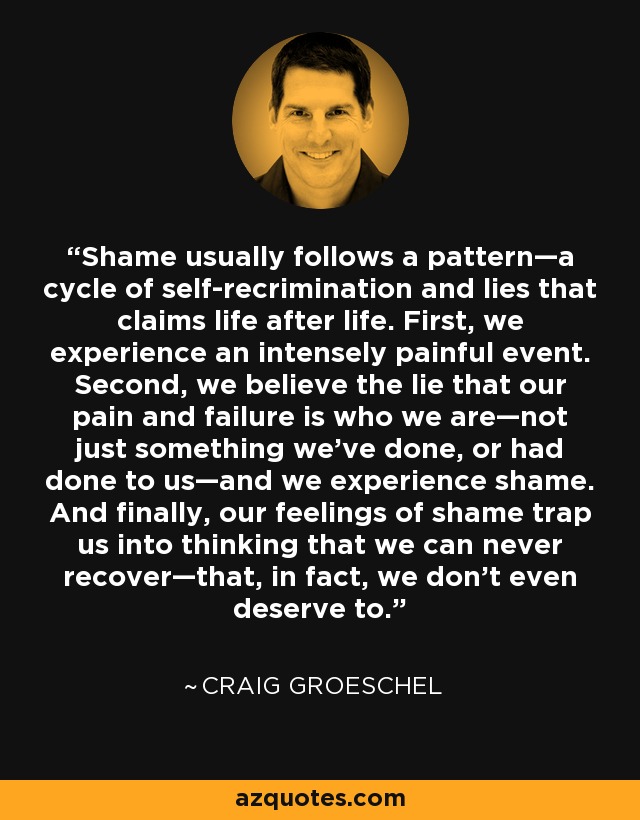-
Shame usually follows a pattern—a cycle of self-recrimination and lies that claims life after life. First, we experience an intensely painful event. Second, we believe the lie that our pain and failure is who we are—not just something we’ve done, or had done to us—and we experience shame. And finally, our feelings of shame trap us into thinking that we can never recover—that, in fact, we don’t even deserve to.
Topics
Cite this Page: Citation







